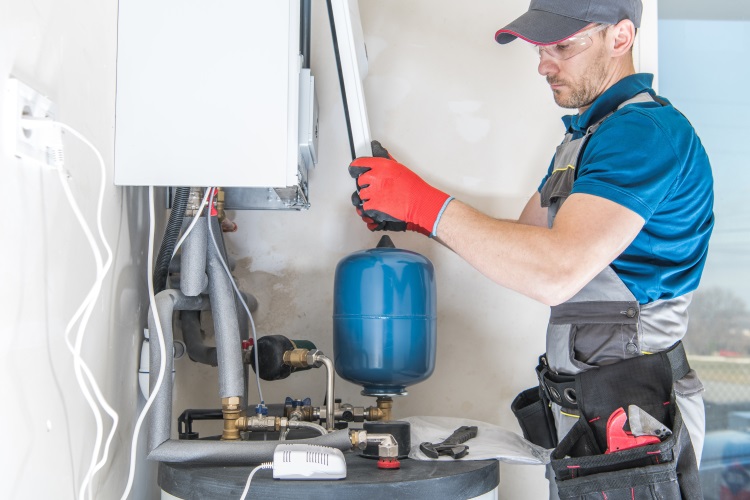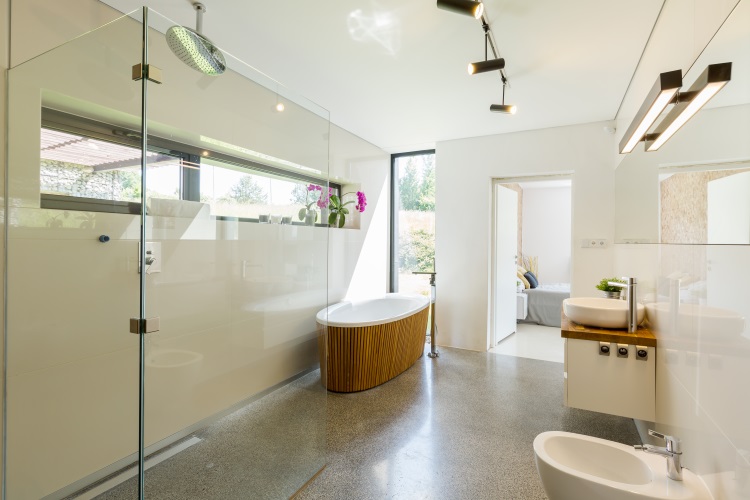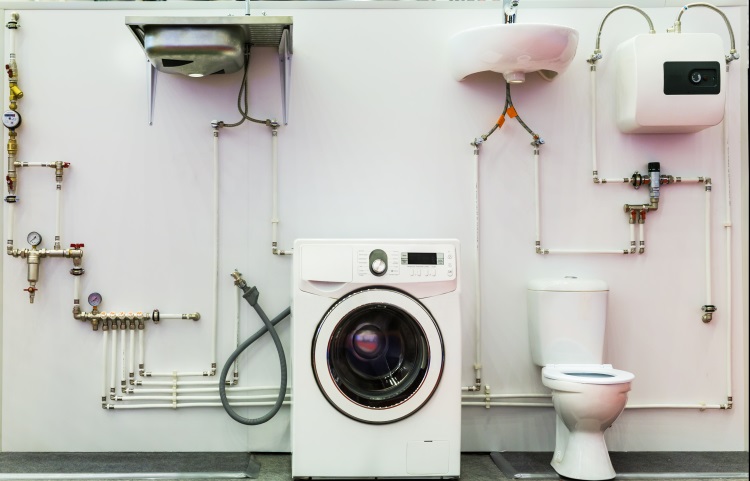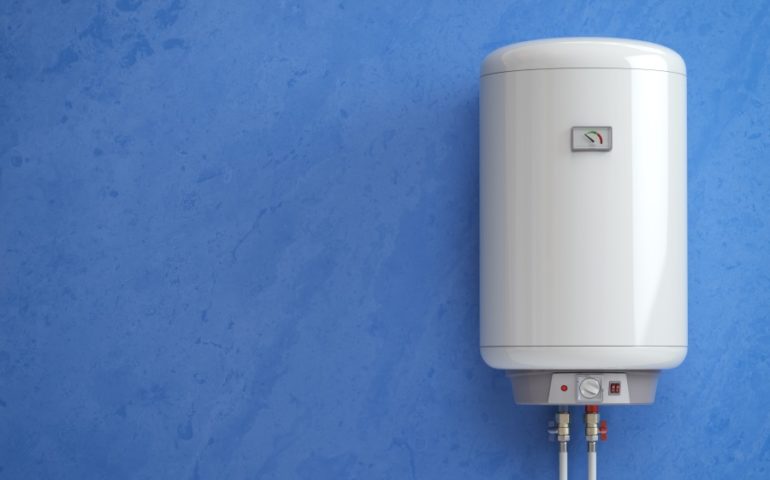The standard form of home water heating system involves a tank that is constantly heated to give you hot water when you need it.
With this sort of system, you lose heat – no matter how well the tank is insulated – and hence it is not the most cost effective or energy efficient system you could have.
The alternative is to use a modern, up to date tankless water heater. Rather than housing hot water, these systems heat the water on demand. They do so by way of clever technology and systems that allow for instant heating, and as such, they are far more cost-effective and energy efficient.

Compact combi boiler heating system
There are a number of types of tankless water heaters. Here, we are talking about gas tankless heaters, and why they may be the best choice for your home, so let’s have a look at the in a little more detail.
What You Need to Know
First, to use this type of water heater, you obviously need a gas supply. Usually this means a natural gas supply from the grid, although there are some models that can be powered by propane gas. The former type are the most attractive, and also the most popular.
The key to efficient water heating using a tankless heater lies in ensuring you have the right ‘GPM’; this is ‘gallons per minute’, and is the output of water that the heater can handle at any one time. This is important as it will impact upon your usage and efficiency.
For example, a shower may use more than 2GPM, your kitchen sink unit only 0.5GPM. Hence, if you have several appliances working together – perhaps a shower, washing machine and so on – then you must have a tankless heater that handles all of them together.

High demand from multiple bathroom appliances
You can see top models here in what is a comprehensive review of gas tankless heaters, with details of GPM and other important specifications.
What else is there to consider? Let’s have a look at the power of the heater itself, in terms of temperature rise.
All About Temperature
It is important to understand that water comes into your home at a certain temperature, which will naturally depend upon where in the world you live. The colder areas to the north and south will have much colder ground water than naturally warmer areas, so this needs to be considered.
You should talk to an expert about the different types of heater that are available, and they will perform an assessment of your water usage and temperature – plus efficiency and more – and will happily suggest the right gas tankless heater for your requirements.

Complex but clean layout…Not very practical!
One other thing you need to consider is whether you might need point-of-use water heaters. In larger homes, for example those with several bathrooms, an individual heater of lower GPM can be used to heat perhaps the main bathroom. This can be an effective method of saving money on heating, and one that you might want to look at.
In general a gas tankless water heater, such as those in the review we have mentioned, will be suitable for an average to larger size of home, but it is important you check in advance.
Save Money and Energy
There are clear benefits to using a gas tankless water heater as opposed to a standard heating system, as we have shown, but there is also one more major benefit we have not touched upon: they last longer!
On average, you will need to replace your ordinary water tank once every 8-10 years. With a tankless heater the average time is more in the region of 20 years.
They are also smaller, so you can utilise the space saved more efficiently, and they are relatively low on maintenance, so you can expect instant hot water wherever you need it, every time.
Modern new-build homes are being fitted with these eco-friendly heaters as a matter of routine, primarily because of their eco-friendly and cost-effective credentials, and they make life a lot easier for families who use heated water frequently.
The money-saving aspect is a major attraction and, given the savings you will make on your daily usage, you will soon recoup the outlay of the installation costs. Talk to the experts now, and find the right gas tankless water heater for your home.














